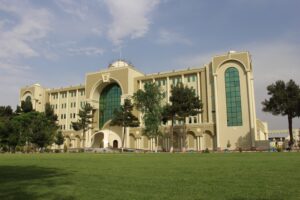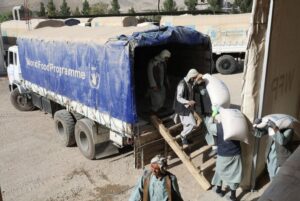KABUL (SW) – A number of factory owners in Kabul’s industrial parks say that not preventing the import of goods similar to domestically produced goods has caused their business to stagnate.
According to them, the cost of importing raw materials, the high rent of land for factories and the cost of generator electricity have multiplied their problems.
Samiuddin, the manager of one of the factories producing plastic shoes in the industrial city of Kabul, said that in the past there were two production machines operating 24 hours a day in his factory, but now he has stopped one of these devices and the other device is active only once a day.
He added: “Due to the import of similar goods with low prices and quality, all the products produced by the factories are left in warehouses after Ramadan, and the way of importing from other countries that produce similar products to ours should be banned, or the tariff should be increased.”
He said that 16 employees were working in this factory, but due to the lack of sales, half of them have become unemployed.
Meanwhile, Rahmat Gul Noori, the manager of one of the paint factories in Kabul’s industrial park, said that the lack of a labor market on the one hand and the high price of land rent for the factories on the other hand have made them face problems. He added: “Raw materials are imported from Türkiye and other countries. If we want to transform from an importing country to an industrial one, we must increase customs duties on imports and use more domestic products.”
On the other hand, Ehsanullah Ehsaas, the spokesperson of the Afghanistan Industrialists’ Association, said that there are now 5,000 factories operating throughout Afghanistan, which has provided employment to 45,000 people. Referring to the key problems of factories, especially the factories of Kabul industrial park, he adds the main challenges of these factories include inadequate electricity, rent and sanctions on the banks.
Officials at the Ministry of Industry and Trade say that they have a plan to distribute land to factory owners to support the industrialists, which will start soon. Akhundzada Abdulsalam Javad, the spokesman of this ministry, told Salam Watandar that some factories that had stopped working before have been reactivated recently with the support of the Ministry of Industry and Trade.
He added: “The field for the production of raw materials in the country has been facilitated. In the part of solving electricity problems related to factories, some of the investors are Chinese and Turkish companies. They have decided to invest in Afghanistan in the coal-based electricity generation sector, which has already started.”
ENDS






